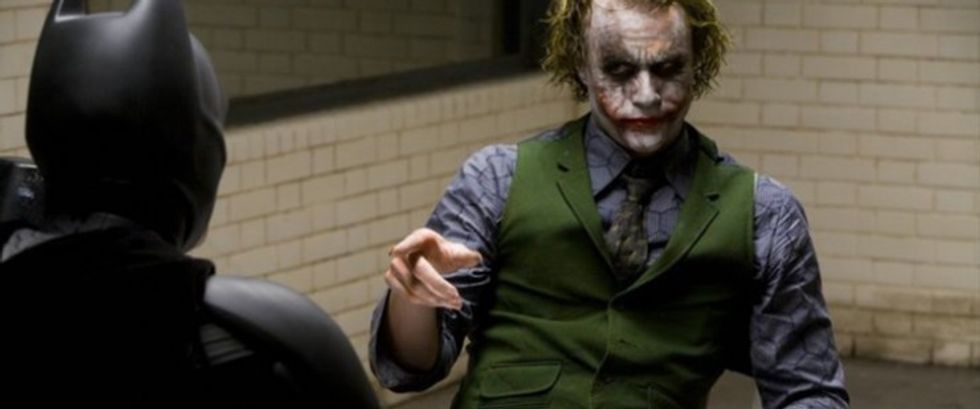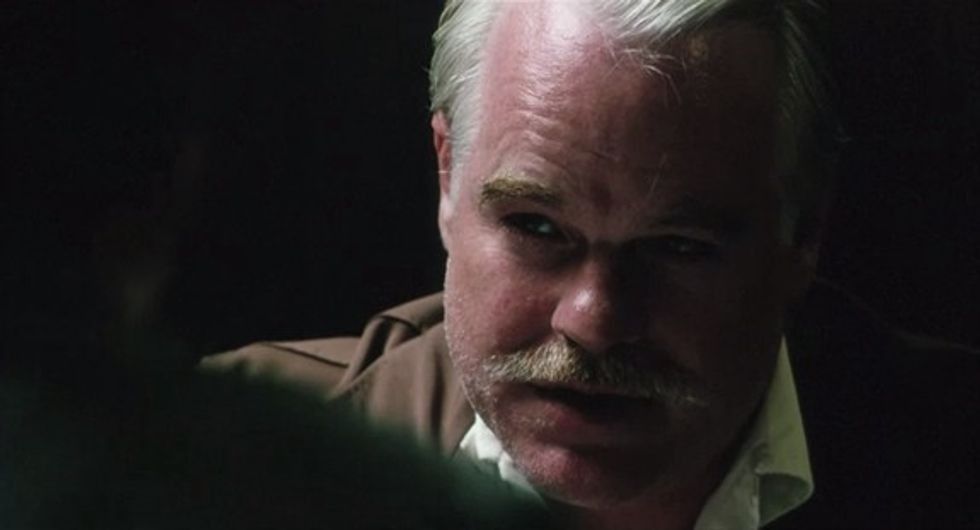
Camera shots and angles come in all shapes and sizes. The “over the shoulder” shot is no different.
It’s one of the most versatile and common shots in all of cinema, but can you define it?
Today, we’re going to look at a few examples of the shot, look at a definition, and talk about why you would use it in your film and television shows.
So, let’s roll!
Over the Shoulder Shot (OTS) Definition

In film or television, an over the shoulder shot is when the camera is positioned behind one character and facing another, so the shoulder and back of the one character are facing the audience.
Some abbreviation of the over the shoulder shot: OTS, or Third Person Shot
Why use an Over the Shoulder Shot?

OTS shots establish an eye line for the audience and can drop us into an intimate point of view.
Over the Shoulder Shot Rules

There are never any “clear” rules for the OTS shot, but I wanted to go over some of the best practices you can incorporate with your own work.
Our first rule is that you always want to keep the eye line of the actor relevant. That makes holding the camera around shoulder level unless you want to raise it and shoot from a high angle to intimidate. Or a low angle to show power. Check out these stills from Back to the Future to catch my drift.

Next, try to avoid any angle that reveals too much of the actor who is facing away from us. Too much of them can be distracting and throw off the focus of the scene.
Grabbing one of these camera angles means keeping your camera pointed at one subject. Now, traditionally, you want to have the other person’s shoulder in the fame, as the name would suggest. But you don’t have to. You could frame it just off the shoulder, and capture the person in a single.

Let’s say instead of it being a clean shot; you want just a glimpse of the shoulder…we call that a dirty single.
As you can see, there’s lots of nuance in the over the shoulder camera angle.
Over the Shoulder Shot Examples

So let’s check out these over the shoulder shots in film and TV together!
Up first, let’s check out this romantic OTS shot from Titanic. It’s used here to project intimacy between the characters. We can physically see how close they are, and the shot is evocative of them falling in love.

This is not just something you use in dramas. It also works in comedy. In Meet the Parents, the OTS gives us the uncomfortable confrontation between father in law and son in law.

Lastly, I love this dramatic shot from Star Wars: The Force Awakens. The OTS shot here provides drama and grace. It gives us a chance to highlight Rey’s awe of Skywalker and her desire to join him here.
Summing Up the OTS Shot
As you can see, the over the shoulder shot has many diverse uses. So make sure you add it to your shot list today!
Let me know what you think in the comments!
Author: Jason Hellerman
This article comes from No Film School and can be read on the original site.
